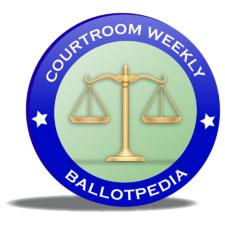| By Jong Son
When trick-or-treaters head to the home of James Davis this Halloween, the tombstone they see in the front yard won’t be a fake prop set up to spook candy-seekers; it may mark the very real final resting place of Davis’ late wife, who is buried near the front porch.
Davis, who claims he was following his wife’s dying wishes, originally applied for a permit from the city of Stevenson, Alabama to inter Patsy Davis on his property in April of 2009, shortly after her passing. Though the county board of health determined that the grave would not pose a health hazard, Stevenson’s City Council refused to grant the permit, citing the grave’s effect on property values, long-term care considerations, and complaints by neighbors. As city attorney Parker Edmiston explained, “We’re not talking about a homestead. We’re not talking about someone who is out in the country on 40 acres of land. Mr. Davis lives in downtown Stevenson.”[1]
Ignoring the council’s decision, James Davis got a backhoe, dug the grave, had a concrete tomb installed, and buried his wife in a metal casket inside the tomb. The city ordered him to move his wife’s body, asserting that the grave constituted an illegal cemetery. City officials went so far as to offer both he and his wife free burial plots in a licensed cemetery elsewhere. Davis refused, claiming that the grave is a family burial plot and legal under state law. Davis points to the fact that the city has no ordinance concerning private burials on residential property.[2]
However, a circuit court agreed with the city, refusing to block the order to move the burial site. Davis appealed the decision, but on October 11, the Alabama Supreme Court affirmed the lower court's decision refusing to allow the front-yard burial, and effectively ending Davis' four-year legal battle.[2][3]
Though private burials are not uncommon in rural areas, “it’s usually the case that people do not ask to be buried within city limits,” says Joshua Slocum, director of the Vermont nonprofit Funeral Consumers Alliance.[2] Stevenson officials have said they are worried about the precedent that could be set by allowing homeowners to bury loved ones in residential areas near the city’s main roads.[3]
After the final ruling, Davis suggested a compromise. He would have his wife's body cremated and her ashes put into an urn, which would then be placed back into the grave. Though the burial of a coffin and vault is impermissible within city limits, there seems to be no law against tombstones or ashes. After facing the city's protests and legal difficulties, Davis has managed to comply as best he could with his wife's wishes and still hopes to be buried next to her when he dies.[2] |







